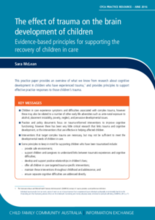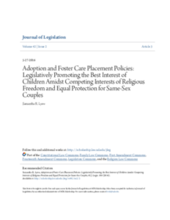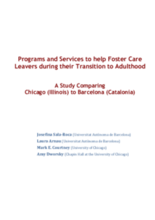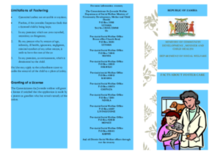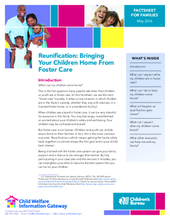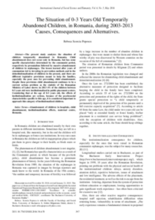Displaying 1681 - 1690 of 2223
This report provides preliminary estimates of U.S. Adoption and Foster Care Analysis and Reporting System (AFCARS) data for Fiscal Year 2015.
This practice paper from the Australian Institute of Family Studies presents an overview of the research on the impacts of trauma on children’s brain development for children placed in out-of-home care and offers basic principles for responding to children’s trauma.
Maxim’s story illustrates the problems with institutional care and the stagnation often seen in the child protection system.
The purpose of this article is to provide psychologists and adoption researchers with a conceptual model for the psychosocial adjustment of foster care adoptees with a background of maltreatment.
This article examines adoption and foster care placement policies as they pertain to the competing interests of religious freedom and equal protection for same-sex couples.
This study compares programs and services that support youth in care during their transition to adulthood and independent living in Chicago, USA to those in Barcelona, Spain.
This brochure contains information about foster care in Zambia, including the definition of foster care, its limitations, its importance, how to become a foster carer and how foster licenses are granted.
This Factsheet from the Child Welfare Information Gateway provides information for families who are reunifying after placement in foster care the US.
This article tests how out-of-home placement of children in Denmark affects men's labor market attachment, and in so doing the authors provide a novel parallel to existing research on how fatherhood affects men, which focuses almost exclusively on a child's arrival.
This study used a secondary analysis of data from 2003 to 2013 to better understand the situation of children temporarily abandoned in Romania. It looked at data for children aged 0-3 years who were abandoned in different hospital units or institutionalized in public orphanages or public and private foster care institutions.


